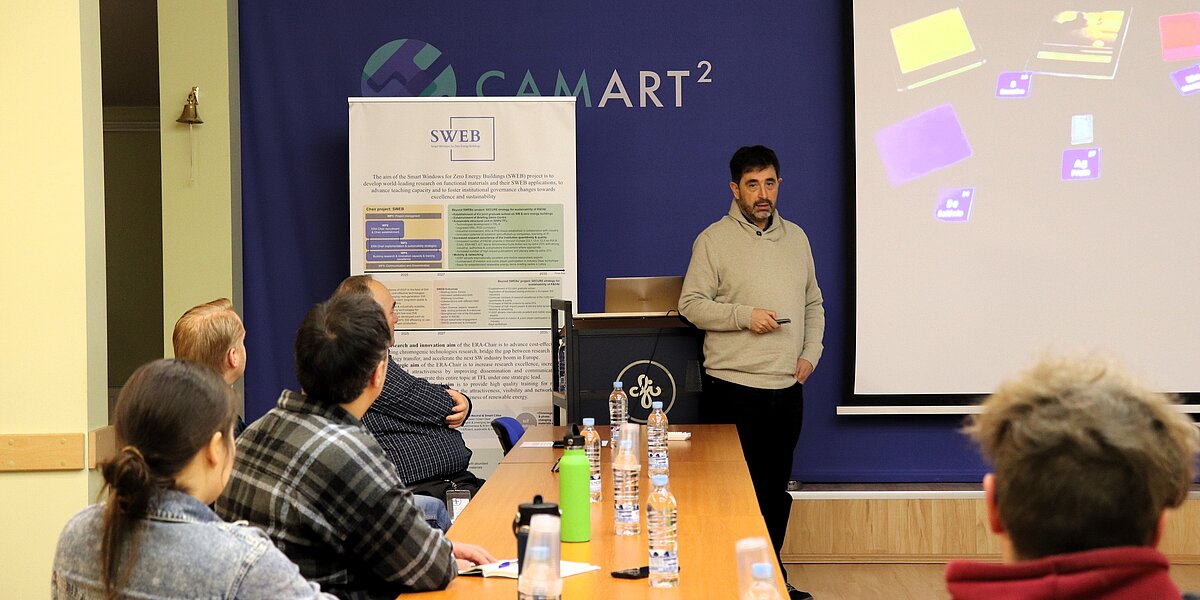
On March 20, 2024, the SWEB project held an engaging seminar with Prof. Dr. César A .T. Laia from Universidade NOVA de Lisboa, Portugal. The seminar focused on "Metal Oxide and Polythiophene Nanoparticles: Advancing Electrochromism for Intelligent Windows and Smart Labels," highlighting innovative research and progress in electrochromism.
Dr. Laia shared his cutting-edge research at the seminar, focusing on the use of metal oxide nanoparticles and polythiophenes to create eco-friendly electrochromic inks. These new materials are expected to bring significant advancements to electrochromic devices by providing more color options, quicker switching times, and longer-lasting performance. Importantly, Dr. Laia's method of using electrodeposition techniques for polythiophenes opens up exciting possibilities for developing irreversible electrochromics with potential uses in safety labels and other areas.
A roundtable chat during the seminar focused on advanced strategies for making Smart Windows. This conversation highlighted the SWEB project's dedication to studying electrochromic materials as a key area of research. It also paved the way for the upcoming SWEB Summer School 2024, where these cutting-edge technologies will be further explored.
The seminar not only offered technical insights but also gave valuable details about career growth for young researchers by introducing Individual Development Plans as part of the SWEB project. This is all part of a bigger effort to support talent and creativity in the industry. The seminar also emphasized the successful partnership between SWEB and Universidade NOVA de Lisboa, especially regarding a project proposal on Neuromorphic Technologies for the Horizon Call on Excellence Hubs. This collaboration, led by Dr. Boris Polyakov from SWEB WP4, demonstrates the solid basis of teamwork and common goals between the two organizations.
The SWEB project keeps pushing forward in developing electrochromic technologies and promoting global cooperation. The ideas and advancements exchanged during this seminar highlight the vital role of the project in influencing upcoming smart materials and technologies.
